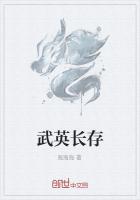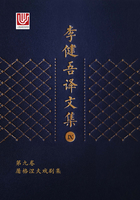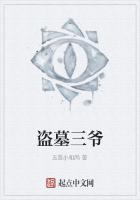On paper, China’s bullish GDP, which has propelled its national economy into the world’s number two spot, would seem a runaway success. However, entrenched economic and political structures rooted in decades of planned economics are proving difficult to shift, making China’s vast national wealth all but impossible to spread more evenly.
By Yuan Ye
“The quality of our GDP is questionable,” said Mao Yushi, one of China’s most esteemed economists, in an interview with NewsChina. “Though the situation isn’t so bad as that the rich become richer as the poor become poorer, the pace of per capita GDP growth is very uneven. The rich get richer way faster than the poor become less poor.”
China’s GDP has seen double-digit growth over three decades, with national GDP in 2010 16.5 times higher than in 1978. China’s growing wealth has become particularly conspicuous in the last decade. According to figures from the National Bureau of Statistics of China, the country’s GDP per capita in 1978 stood at US241. It exceeded the US1,000 benchmark in 2001, officially elevating China to the status of a lower middle income country according to World Bank standards. Only nine years later, in 2010, per capita GDP exceeded US4,000, edging China into the upper middle income category.
This positive growth trend has also come with itinerant problems. According the director of the Research Center of Income Division and Poverty of the Beijing Normal University Professor Li Shi, the income differential between the richest and the poorest 10th percentiles in China’s has more than trebled in less than two decades, from 7.3 times in 1988 to 23 times in 2007. This income gap is reflected by China high Gini Coefficient, which passed the UNDP “alarm boundary” of 0.4 for the first time in 1997, briefly dropped below it in 1999 before soaring into the new millennium, hitting 0.5 last year. This was accompanied by an almost equivalent increase in “mass incidents,” or public protests. Income disparity has left the general population more sensitive to issues such as inflation, unemployment, environmental degradation and the risk of economic bubbles.
Yet redressing China’s income imbalance is far from straightforward. Wu Jinglian, a well-known economist and researcher for the Development Research Center of the State Council said that continuing the current expansionary policy to drive up prosperity through accumulation of wealth could lead to hyperinflation and asset bubbles. Conversely, adopting a fiscal retrenchment policy could spark an economic downturn with a depressed market, high unemployment and reduced revenue stream for local government.
The central government is well aware of the dilemma they face. In the Party’s proposed 12th Five-Year Plan (2011-2015), delivered to the National People’s Congress (NPC) in March, a planned realignment of policy was evident through the goverment’s careful choice of words – the word “transform” appeared 24 times, a more than twofold increase on the previous Five-Year Plan issued in 2006. The Central Conference on Economic Works, held
at the end of 2010, stipulated that “transformation” of China’s central economic model was a process “of the greatest urgency.”
The government flagged China’s export-driven economic growth as potentially problematic in 2006, when its 11th Five-Year Plan (2006-2010) set out goals to shift economic focus onto increasing domestic consumption in order to wean Chinese industry off manufacturing goods for export. There were also clauses relating to upgrading and optimizing the country’s economic structure, improving the quality and efficiency of economic development and realizing “balanced and sustainable growth.”
Optimistic ideas proved hard to implement. Central directives were slowed down at the local level by the inertia of existing policies and their corresponding institutions which remained bolstered by special interests. In the words of economist Wu Jinglian, “institutional obstructions” to reform are well-entrenched. Many reform-minded economists call the current situation “an opportunity to carry out the second transformation.”
“If we define the 30 years of opening-up and reform as China’s first economic transformation, what we need to do now is to enrich the content of its second transformation,” commented Wang Yiming, vice-dean of the Academy of Macroeconomic Research under the National Development and Reform Commission.
Most commentators agree that China is waiting at a crossroads. What few seem able to agree on is how long the nation will have to wait.
Dilemma
In 1987, when the CPC set out its goal to quadruple the nation’s 1980 GDP by the end of the 20th century, it didn’t expect this would be achieved in four short years. Neither did it expect its aim to raise China’s per capita GDP to that of a middle income country four decades ahead of schedule – the Politburo had expected to reach this milestone around 2050.
Economist Mao Yushi argues for a three-stage overview of China’s economic miracle. Mao’s first stage was between 1978 and 1993, when China shifted policymaking away from political ideals and towards economic growth. The second stage began in 1993 when Deng Xiaoping delivered a speech embracing market economics. The third stage began in 2002 when China gained membership to the WTO, when, in Mao’s view, “the market rules of fair competition and freedom of choice, as well as protection of property, were introduced into China.”













